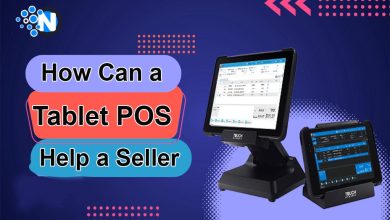Revolutionary Techniques for Trading International Markets

While trading in foreign markets offers many options, it also presents a unique set of difficulties. You can successfully traverse these markets by utilizing the appropriate tools, creating sound plans, and efficiently minimizing risks. If you are entering to the world of international trade, you are here at the right place! This blog post contains the best techniques to support your success in the ever-changing world of international trade.
Want to learn more about international trade to get more out of it? You can visit an educational platform the-immediate-genesis.com/ to learn from experts.
Essential Tools and Resources
The appropriate tools and resources are needed for trading on foreign markets. Selecting a dependable trading platform is the first step. These platforms provide access to many markets, charting tools, and real-time data. TradeStation and MetaTrader are two well-liked options. They offer intuitive user interfaces that facilitate traders’ rapid and well-informed decision-making.
Second, it is necessary to have access to international news sources. Websites that provide up-to-date news that can influence market movements include Bloomberg, Reuters, and CNBC. It is important to keep up with news on politics, the economy, and other world events. Traders can use this knowledge to predict changes in the market and modify their strategy accordingly.

Tools for data analytics are also beneficial. With the help of these tools, traders can examine past data and spot patterns and trends. Advanced charting capabilities and a sizable trading community with shared insights are provided by platforms such as TradingView. This might be especially helpful for novice traders who want to pick up tips from more seasoned traders.
Economic calendars are also a must. Important dates for economic reports and events are listed. Being aware of the due dates for these reports might help traders get ready for any volatility in the market. Investing.com and Forex Factory are two websites that offer thorough economic calendars.
And lastly, it is impossible to ignore educational materials. Numerous websites provide seminars, tutorials, and courses on trading. Courses on websites like Udemy and Coursera range in difficulty from entry-level to advanced. Over time, these resources aid traders in expanding their expertise and honing their craft.
Having the appropriate resources and tools is essential for successful trading. A strong trading strategy is built on a foundation of dependable trading platforms, worldwide news access, data analytics tools, economic calendars, and educational materials. Navigating the intricacies of global marketplaces requires constant learning and awareness.
Developing a Robust Trading Plan
The key to success in global markets is developing a solid trading plan. Investigate first. Recognize the market that you are dealing in. Every market has unique dynamics that are shaped by regional political developments, economic situations, and cultural elements.
Start by doing a fundamental analysis. This involves the consideration of parameters such as the gross domestic product (GDP) growth, inflation and employment figures. For instance, if one country has relatively faster economic development compared to the other then it would be possible to trade more there. Also, focus on central banks’ actions and shifts in the interest rates because they can affect the market moves.
Next, consider technical analysis. This involves analysing price graphs and employing technical tools such as the moving average, relative strength index, and moving average convergence-divergence. Technical analysis assists in managing talents and recognizing such things as tendencies, probable areas for getting in, and where to get out of the cycle. It is mandatory to employ historical data to test whether the strategies developed have efficiency or not.
Risk management is another one of them. Focus and incorporate stop loss and take profit levels for your investment. Better still, apply the principle of diversification, hence expand your company’s investment in different markets and classes of investments. For an example if you invest in shares think of putting your money in either commodities or foreign exchange.
Avoid emotions in trading activity. Here, people get carried away due to market fluctuations in a given period, but it is important to be patient. It is advisable to consider conditions of the market and often revise the strategy in compliance with them. To keep track of your trades and analyze your choices, keep a trading notebook. This makes it easier to spot trends and potential improvement areas.
Risk Management and Mitigation
When dealing with international markets, risk management is essential. Establish specific goals first. Determine the amount of risk you are ready to take on each trade. One standard guideline is to never risk more than 1% to 2% of your trading money in a single transaction.
It’s important to diversify. Distribute your investments throughout several asset types and markets. This lessens the effect of subpar work in one area. If you trade equities, for instance, you could want to diversify your holdings by including bonds or commodities. In this manner, your entire risk is reduced in the event that one market encounters volatility.
Put stop-loss orders in place to safeguard your equity. In order to limit your losses, a stop-loss order automatically sells an investment when its price hits a specific point. Take-profit orders can also be used to lock in profits when a security hits a target price.
Another tactic is hedging. This is trading in a correlated market to hedge against possible losses. For example, you may hedge your significant foreign currency holding by entering the opposite position in the futures market. In this manner, gains in the futures market might balance your losses in the event that the value of the currency declines.
Keep yourself updated on market conditions. Events in the economy, unstable political environments, and natural calamities can all affect markets. Utilize economic calendars to remember significant dates. Observe international news outlets to remain informed about happenings that can impact your trading.
Our Final Opinion
To become an expert international market trader, you need a combination of discipline, strategy, and knowledge. You can succeed by keeping yourself informed, adjusting to market changes, and using effective risk management strategies. Unlock the potential that international markets have to offer by confidently embracing the adventure.




